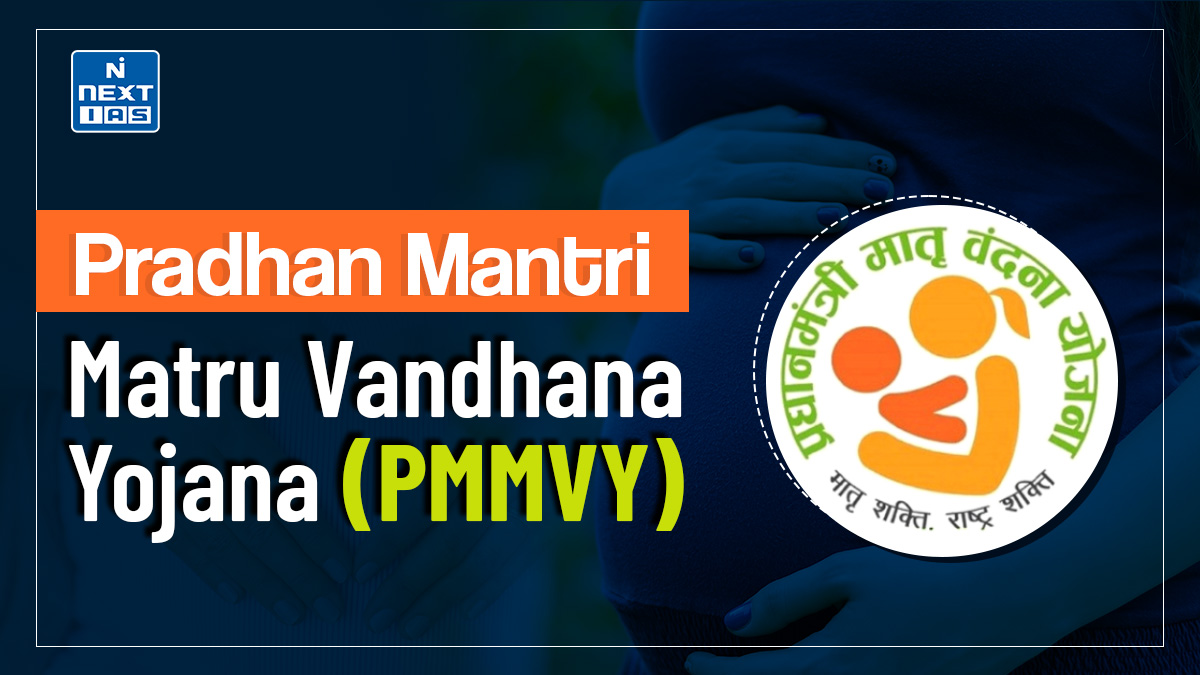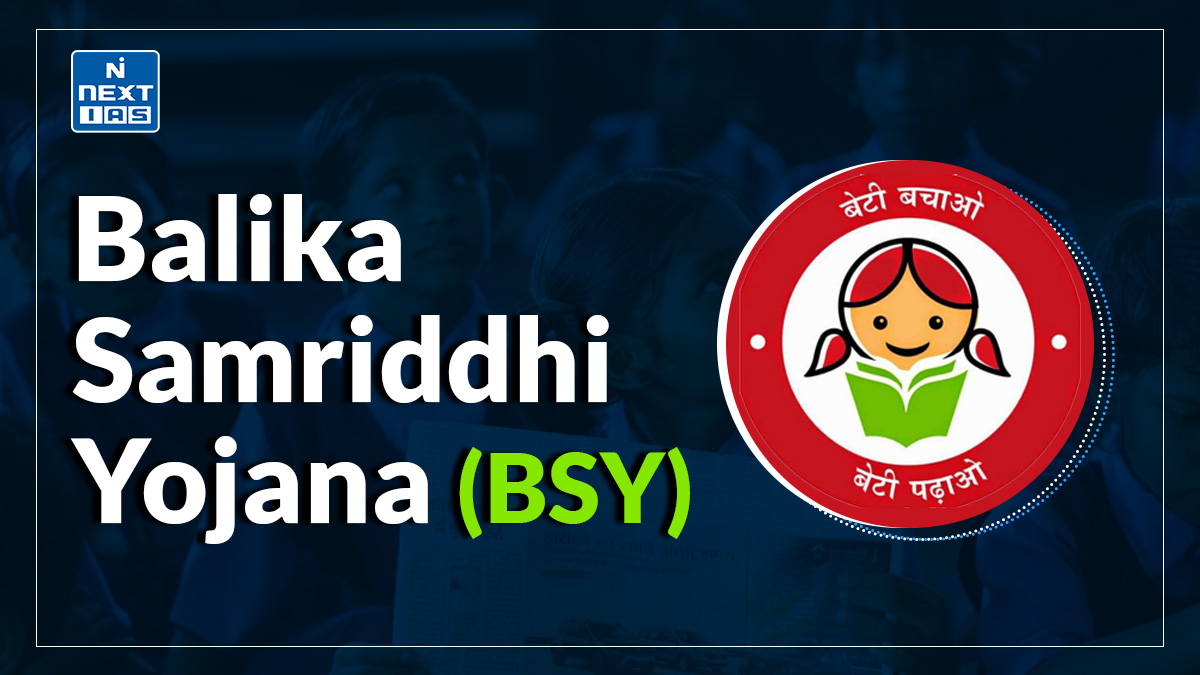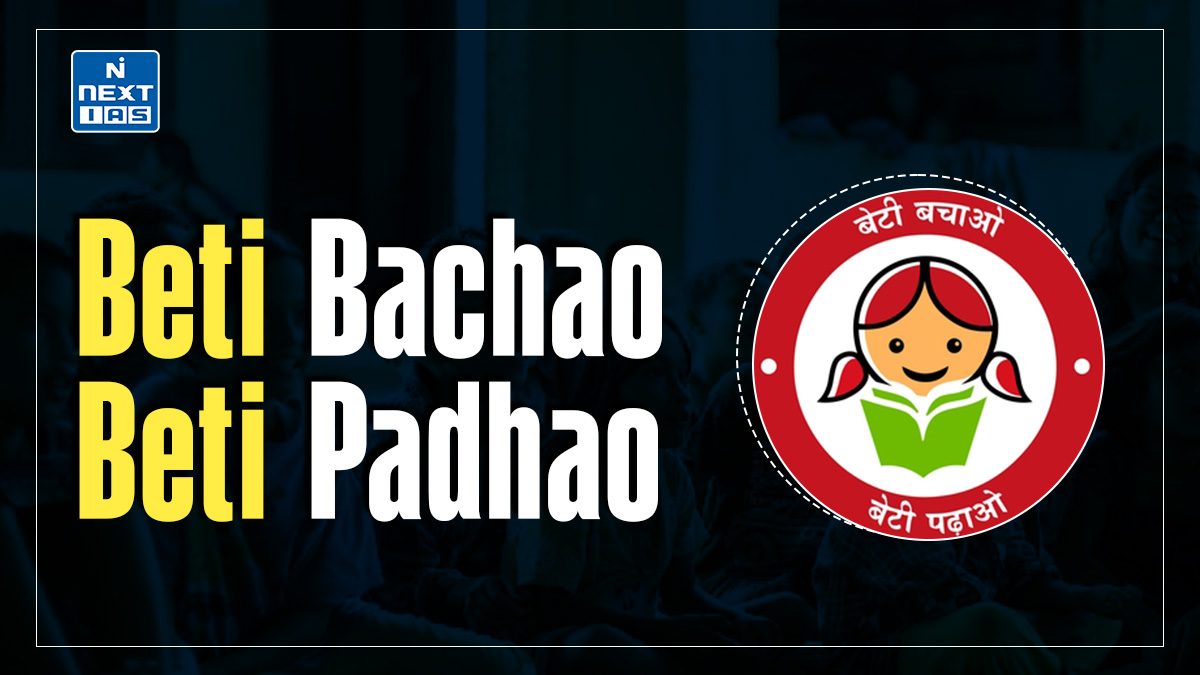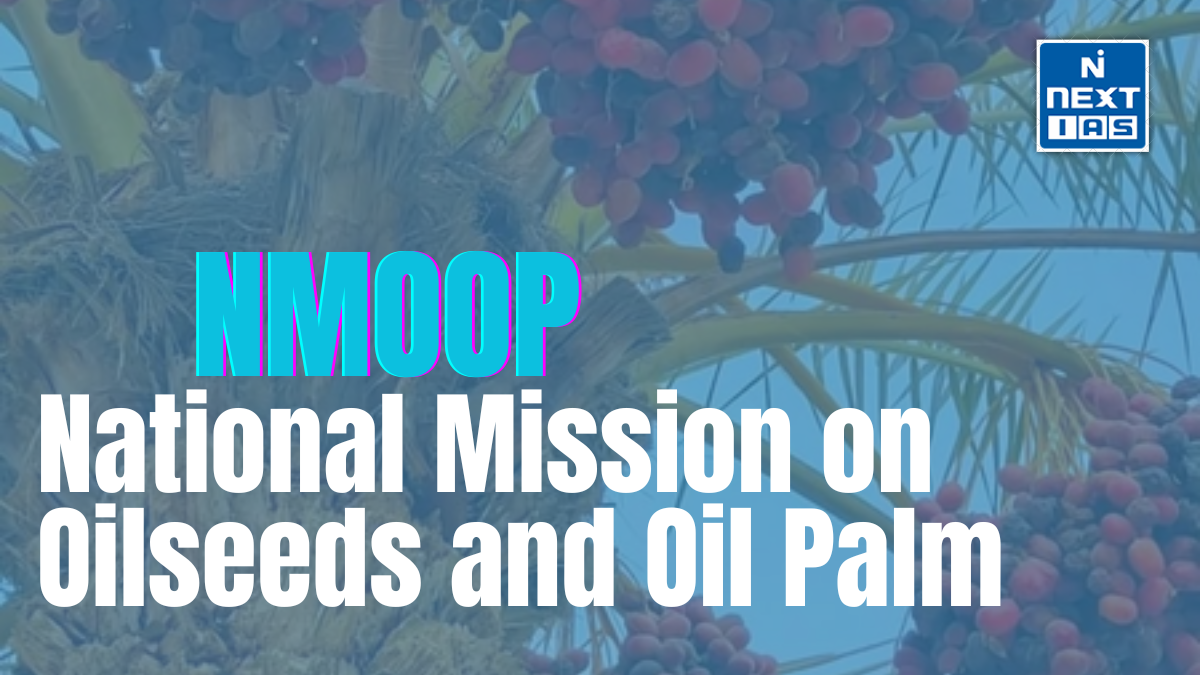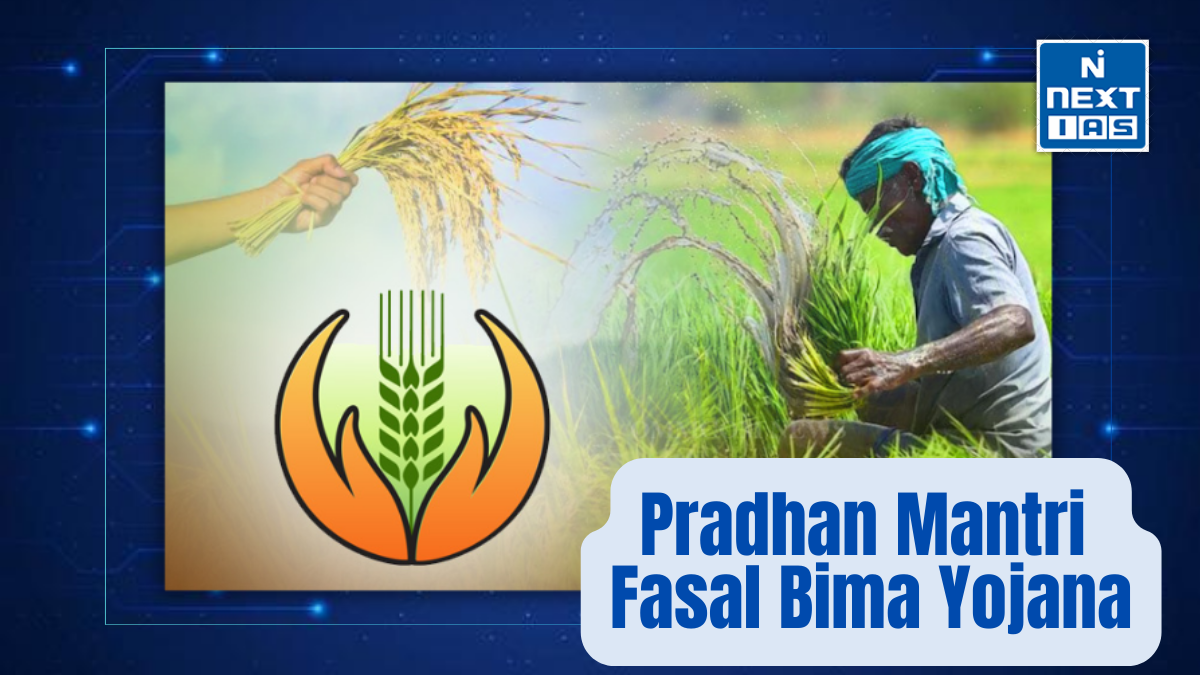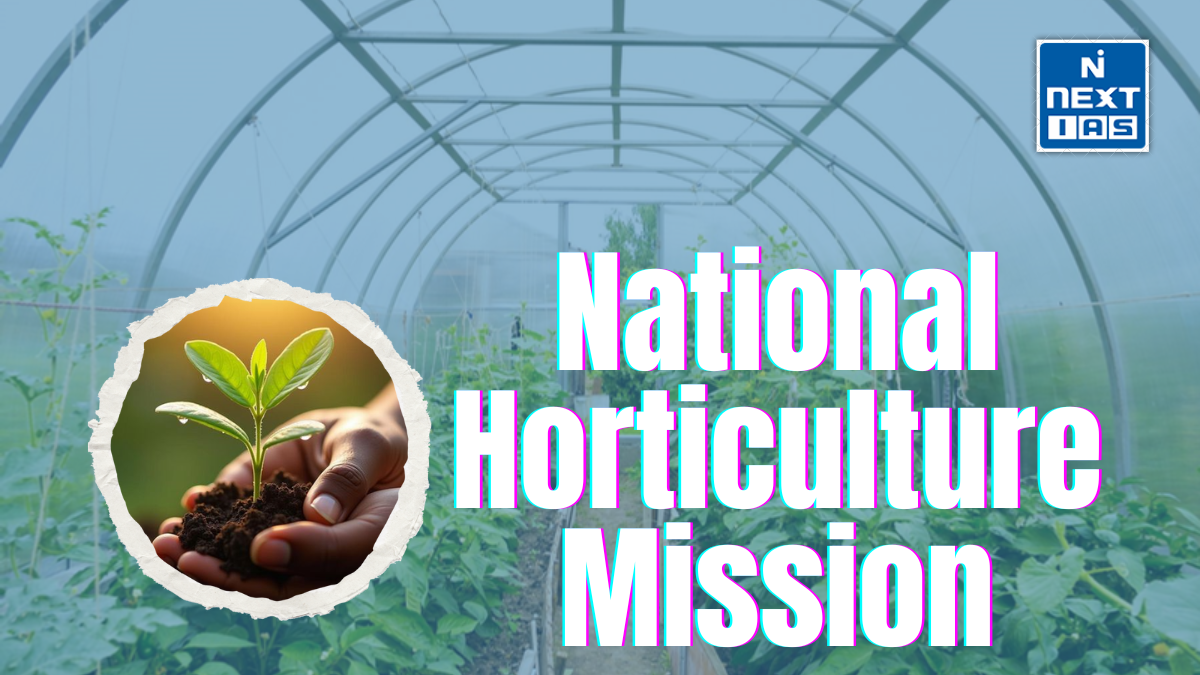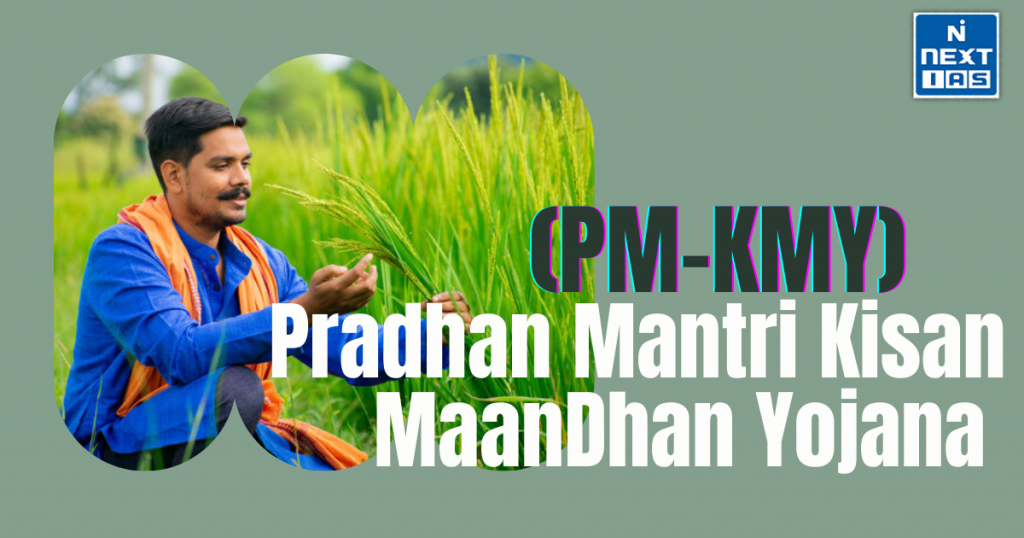
Pradhan Mantri Kisan MaanDhan Yojana (PM-KMY) is a government initiative launched in 2019 to provide social security for small and marginal farmers. It offers a monthly pension of ₹3,000 after the age of 60. The scheme aims to ensure financial stability and dignity for farmers during their post-retirement years.
About Pradhan Mantri Kisan MaanDhan Yojana (PM-KMY)
- Pradhan Mantri Kisan MaanDhan Yojana (PM-KMY) is a government pension scheme launched in 2019 to provide financial security to small and marginal farmers in India.
- The scheme aims to support farmers in their old age by offering a monthly pension of ₹3,000 after the age of 60. Eligible farmers between 18 and 40 years with landholdings up to 2 hectares can enroll voluntarily.
- Under PM-KMY, farmers contribute a nominal monthly amount ranging from ₹55 to ₹200, depending on their age at entry, with the government contributing an equal amount. In the event of a farmer’s death, the spouse receives 50% of the pension as a family pension.
- The scheme addresses the financial vulnerabilities of farmers by ensuring steady income post-retirement, reducing dependency on others. It complements other farmer-centric initiatives, promoting welfare and dignity for the agricultural community. Enrollment is simple and facilitated through Common Service Centers (CSCs).
Features of Pradhan Mantri Kisan MaanDhan Yojana (PM-KMY)
The Pradhan Mantri Kisan MaanDhan Yojana (PM-KMY) is a government initiative launched in 2019 to provide social security to small and marginal farmers in India during their old age. Below are its key features:
- Target Beneficiaries:
- Small and marginal farmers owning up to 2 hectares of cultivable land.
- The scheme is voluntary and open to farmers aged between 18 and 40 years.
- Pension Benefits:
- Eligible farmers receive a minimum fixed pension of ₹3,000 per month upon reaching 60 years of age.
- If the beneficiary passes away, the spouse receives 50% of the pension as a family pension.
- Contribution-Based Scheme:
- Farmers contribute monthly amounts ranging from ₹55 to ₹200, depending on their age at enrollment.
- The government matches the farmer’s contribution on a 1:1 basis.
- Fund Management:
- The pension fund is managed by the Life Insurance Corporation of India (LIC), ensuring secure and stable returns.
- Flexibility and Exit:
- Farmers can exit the scheme voluntarily.
- If a farmer exits before 60, their contribution is refunded with interest, or the savings bank interest rate, whichever is higher.
- No Burden on Farmers:
- Farmers already registered under PM-Kisan are automatically eligible, and their contributions can be deducted from PM-Kisan benefits.
This scheme aims to ensure financial stability and dignity for farmers in their retirement, addressing rural distress and supporting the agricultural community.
Objectives of Pradhan Mantri Kisan MaanDhan Yojana (PM-KMY)
The Pradhan Mantri Kisan Maan-Dhan Yojana (PM-KMY) is a government initiative aimed at ensuring social security for small and marginal farmers in India. Launched in 2019, the scheme seeks to address financial insecurities in old age, enabling farmers to live with dignity. The primary objectives of the scheme are:
- Provide Pension Support to Farmers:
- PM-KMY aims to offer a steady source of income for small and marginal farmers after the age of 60 through a monthly pension of ₹3,000. This provides financial stability in their retirement years.
- Promote Economic Security:
- The scheme encourages farmers to save and invest systematically during their productive years, helping them build a financial cushion for the future.
- Inclusive Coverage:
- The scheme focuses on supporting small and marginal farmers with cultivable land of up to 2 hectares, ensuring coverage for the most vulnerable sections of the agricultural community.
- Reduce Rural Poverty and Dependency:
- By offering financial independence in old age, the scheme reduces dependency on others, enhancing the self-esteem of farmers and reducing rural poverty.
- Encourage Voluntary Contributions:
- Farmers aged 18–40 can contribute small amounts based on their age to the pension fund, which is matched equally by the government, fostering a sense of responsibility and partnership.
- Improve Rural Livelihoods:
- By addressing financial insecurities, PM-KMY contributes to improving the quality of life in rural areas, ensuring farmers can focus on agriculture without fear of future hardship.
This initiative reflects the government’s commitment to uplifting the farming community and providing long-term economic security.
Significance of Pradhan Mantri Kisan MaanDhan Yojana (PM-KMY)
- The Pradhan Mantri Kisan MaanDhan Yojana (PM-KMY) is a significant welfare scheme launched by the Government of India to provide social security to small and marginal farmers in their old age.
- This voluntary and contributory pension scheme addresses the economic vulnerability faced by farmers, who often lack a steady income post-retirement.
- Under PM-KMY, farmers aged between 18 and 40 years with cultivable landholding of up to 2 hectares are eligible to enroll. They contribute a nominal amount, ranging from ₹55 to ₹200 per month, based on their age at entry. An equal contribution is made by the central government.
- Upon attaining the age of 60, enrolled farmers receive a monthly pension of ₹3,000. In case of the farmer’s demise, the spouse becomes eligible for 50% of the pension amount as a family pension.
- The scheme is crucial for securing farmers’ livelihoods in their later years, reducing dependence on family or informal sources of support. It alleviates the financial stress associated with healthcare, daily expenses, and emergencies during old age, thus promoting dignity and self-reliance.
- PM-KMY also underscores the government’s commitment to improving rural welfare and addressing agrarian distress.
- By ensuring a safety net, the scheme helps stabilize the agricultural sector, indirectly benefiting food security and rural development. Additionally, it encourages a culture of financial planning and savings among farmers, which can help improve their quality of life. Overall, PM-KMY plays a vital role in empowering India’s farming community and enhancing their social security.
Lacunae of Pradhan Mantri Kisan MaanDhan Yojana (PM-KMY)
The Pradhan Mantri Kisan Maan-Dhan Yojana (PM-KMY) is a pension scheme for small and marginal farmers, ensuring a monthly pension of ₹3,000 after the age of 60. While the scheme is well-intentioned, it faces several lacunae:
- Low Awareness: Many eligible farmers are unaware of the scheme due to inadequate outreach and dissemination of information, especially in remote areas.
- Enrollment Challenges: The registration process is not farmer-friendly, requiring online enrollment. Many rural areas lack digital literacy and infrastructure, creating barriers for farmers.
- Limited Coverage: The scheme is restricted to small and marginal farmers owning up to 2 hectares of land. This excludes landless agricultural laborers, tenant farmers, and sharecroppers, who are often the most vulnerable.
- Financial Burden: Farmers must contribute monthly premiums ranging from ₹55 to ₹200 until the age of 60. Many small farmers, already burdened by debts and low incomes, may find it difficult to afford this contribution consistently.
- Implementation Issues: Delays and inefficiencies in the registration and fund disbursement processes hinder the scheme’s effectiveness. Coordination between states and the central government is also lacking.
- Limited Immediate Benefit: Since the benefits are only available after 60, the scheme does not address immediate financial needs or crises faced by farmers.
- Dependence on Government Contribution: The sustainability of the scheme depends on continuous government funding, which could face challenges during economic downturns.
To improve PM-KMY, simplifying the enrollment process, expanding coverage, and addressing immediate farmer needs are critical.
Key Pointers of the Pradhan Mantri Kisan Maan-Dhan Yojana (PM-KMY) for UPSC CSE Prelims
- Objective:
- To provide a social security net for small and marginal farmers through a pension scheme.
- Eligibility:
- Farmers aged 18 to 40 years.
- Must own cultivable land up to 2 hectares.
- Features:
- Voluntary and contributory pension scheme.
- Farmers contribute ₹55 to ₹200 per month, depending on their age.
- The Central Government provides an equal matching contribution.
- Benefits:
- A monthly pension of ₹3,000 after the age of 60.
- In case of a farmer’s death, the spouse receives 50% of the pension as a family pension.
- Exclusions:
- Farmers paying income tax or covered under other government pension schemes.
- Institutional landholders are ineligible.
- Implementation:
- Administered by the Ministry of Agriculture and Farmers’ Welfare.
- Enrolled through Common Service Centres (CSCs).
- Link to PM-Kisan:
- Farmers receiving benefits under the PM-KISAN scheme can enroll easily, as contributions are deducted directly from their PM-Kisan account.
- Target Group:
- Focused on small and marginal farmers, addressing their old-age insecurities.
Way Forward
The way forward for PM-KMY includes increasing farmer enrollment through awareness campaigns, simplifying registration, and leveraging digital platforms. Expanding coverage, especially for small and marginal farmers, ensuring timely disbursal of pensions, and integrating it with other welfare schemes can strengthen social security and provide a stable income for India’s vulnerable farmers.
Conclusion
The Pradhan Mantri Kisan Maan-Dhan Yojana (PM-KMY) is a vital initiative ensuring financial security for small and marginal farmers through a pension scheme. By addressing old-age vulnerabilities and promoting social welfare, it empowers farmers, enhancing their dignity and economic stability, while supporting the agricultural backbone of India’s economy.
